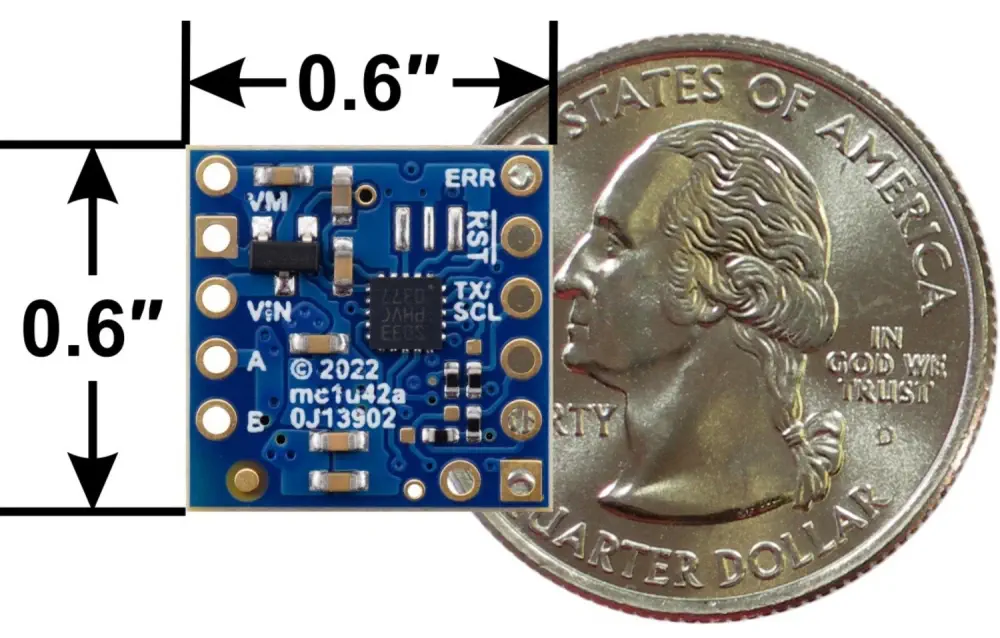Payments and Security
Your payment information is processed securely. We do not store credit card details nor have access to your credit card information.
Description
- M1T256 with an I²C interface
- 1x 12 breakaway male header (included but not soldered in)

- Compact size: 0.6 x 0.6 inch
- One motor control channel allows for the control of one bidirectional brushed DC motor per Motoron
- Wide motor supply voltage range: 4.5 V to 48 V (absolute maximum)
- Recommended maximum nominal battery voltage is approximately 36 V
- Maximum output current per motor: 2 A continuous, 6.4 A peak for less than 1 second
- Reverse-voltage protection on motor power supply (down to -40 V)
- Logic voltage range: 3.0 V to 5 V
- Control interface: M1T256 - I²C (up to 400 kHz), M1U256 - non-inverted TTL serial (up to 250 kbps)
- Optional cyclic redundancy checking (CRC)
- Configurable motion parameters: Maximum acceleration/deceleration forward/reverse, starting speed forward/reverse, direction change delay forward/reverse
- PWM frequency: Eight options available from 1 kHz to 80 kHz
- Command timeout feature stops the motor if the Motoron stops receiving commands
- Configurable automatic error response
- Motor power supply (VIN) voltage measurement
- Two status LEDs
- Motor direction indicator LEDs
- Error output for easier detection of error conditions
- Motoron Arduino library simplifies using the Motoron with an Arduino or compatible controller
- Motoron Python library simplifies using the Motoron with Python or MicroPython
- Comprehensive user's guide











